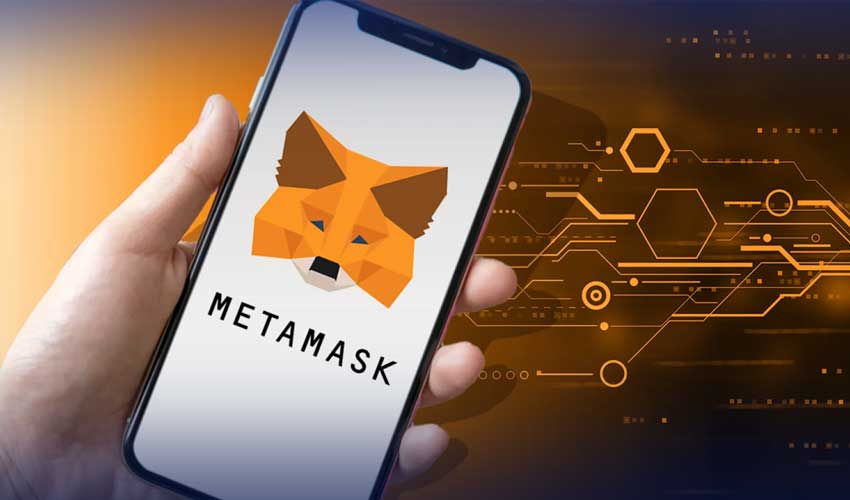In the world of cryptocurrencies, one of the most fundamental tools for holding, securing, and transacting digital assets is the crypto wallet. Whether you’re a seasoned crypto trader or just beginning your journey into the world of decentralized finance (DeFi), understanding crypto wallets is essential Metamask wallet. In this article, we’ll break down what crypto wallets are, how they work, and the different types you can use.
What is a Crypto Wallet?
A crypto wallet is a digital tool that allows users to store and manage their cryptocurrencies. It functions similarly to a traditional wallet, but instead of holding physical currency, it holds private keys that provide access to digital assets. Crypto wallets come with public addresses, similar to account numbers in the traditional banking system, which are used to send and receive funds.
How Crypto Wallets Work
Crypto wallets are essentially a pair of cryptographic keys:
- Public Key: Think of this like your bank account number. It’s a string of numbers and letters that others can use to send you cryptocurrency.
- Private Key: This is the most crucial part of your wallet, akin to a password or PIN code. The private key is used to sign transactions, and it should be kept secure at all costs. Anyone with access to your private key can control your assets.
The wallet doesn’t actually “store” cryptocurrencies in the traditional sense. Instead, it stores these private keys, which allow you to access and manage your assets on the blockchain.
Types of Crypto Wallets
Crypto wallets are generally divided into two broad categories: Hot Wallets and Cold Wallets.
1. Hot Wallets
Hot wallets are connected to the internet and are often used for day-to-day transactions and trading. They are ideal for those who need easy access to their cryptocurrencies but come with a higher risk of hacking since they are online.
- Software Wallets: These wallets can be downloaded and installed on your computer or smartphone. Examples include Exodus, Electrum, and Mycelium.
- Web Wallets: These wallets are browser-based and accessible via websites like Coinbase, Blockchain.info, and MetaMask.
Pros of Hot Wallets:
- Easy to access and use.
- Convenient for frequent trading and transactions.
- Often offer features like integration with exchanges and dApps (decentralized applications).
Cons of Hot Wallets:
- Vulnerable to hacking and phishing attacks.
- Depend on internet access to function.
2. Cold Wallets
Cold wallets are offline and therefore provide enhanced security. They are ideal for long-term storage of cryptocurrency since they are immune to online attacks.
- Hardware Wallets: These are physical devices (such as USB sticks) that store private keys offline. Popular hardware wallets include Ledger Nano S, Trezor, and KeepKey.
- Paper Wallets: A paper wallet is simply a physical document with your private and public keys printed on it. It is a very secure form of cold storage but requires careful handling.
Pros of Cold Wallets:
- Extremely secure because they are offline.
- Ideal for long-term storage.
Cons of Cold Wallets:
- Less convenient for frequent transactions.
- If you lose the physical device or paper wallet, you lose access to your funds.
Choosing the Right Wallet for You
When selecting a crypto wallet, consider your specific needs:
- Security: If you’re holding large amounts of cryptocurrency or planning to hold your assets long-term, a cold wallet (like a hardware wallet) is likely the best option.
- Convenience: If you’re frequently transacting or trading, a hot wallet (like a software or web wallet) will be more convenient.
- Cost: While hot wallets are typically free, cold wallets, especially hardware wallets, may come with a cost (typically between $50 and $200).
How to Secure Your Crypto Wallet
The security of your crypto wallet is of utmost importance. Here are some tips to ensure your wallet remains safe:
- Backup your private keys: Write down your private keys or recovery phrases in a secure location, separate from the device where your wallet is stored.
- Use multi-factor authentication (MFA): Many hot wallets and exchanges support MFA, which adds an extra layer of security to your wallet.
- Encrypt your wallet: Encryption adds another layer of protection in case your wallet is accessed by someone else.
- Beware of phishing: Always verify that you are on the correct website or app before entering sensitive information like your private key.
The Future of Crypto Wallets
As cryptocurrency continues to evolve, so will crypto wallets. We can expect improvements in both security and user experience, with features like biometric authentication, more seamless integrations with decentralized finance platforms, and further innovations in multi-currency support.
Moreover, with the increasing adoption of blockchain technology, crypto wallets will likely become an essential tool for managing not just cryptocurrencies, but also digital assets like NFTs (non-fungible tokens), tokenized assets, and even decentralized identity solutions.
